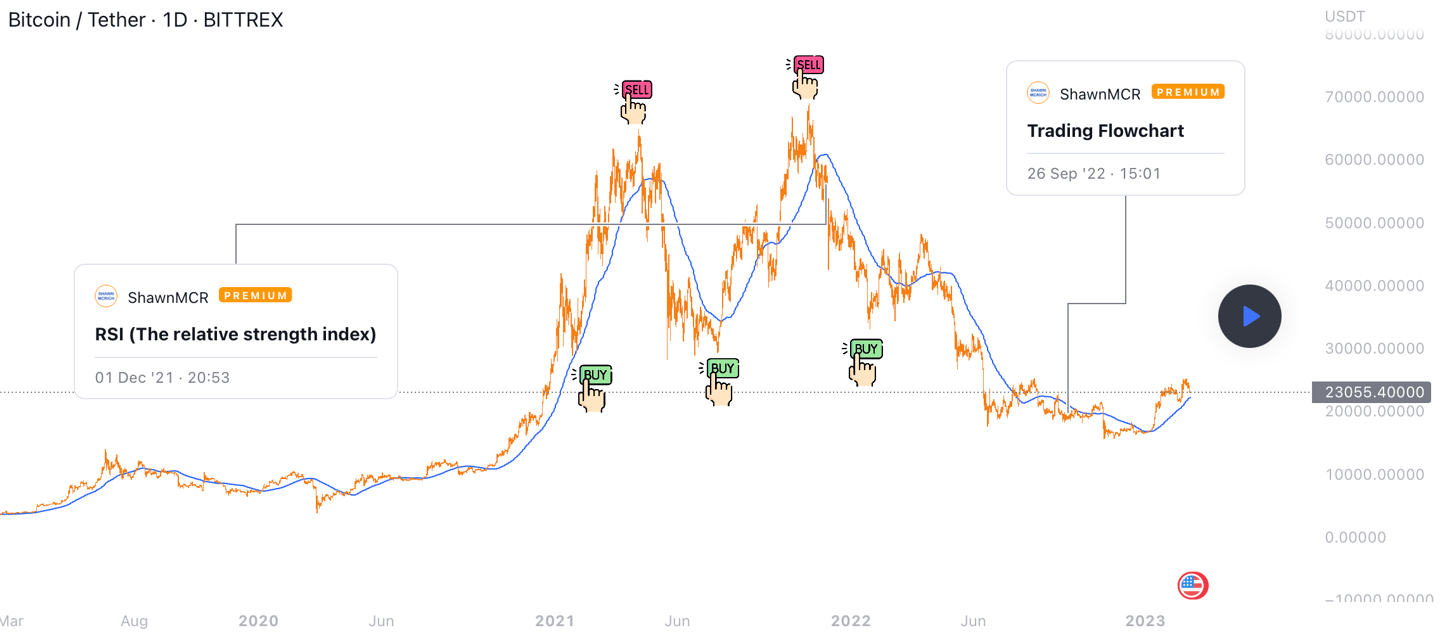The Market Trends
Educational Idea - Tutorial by ShawnMCR - Market Trends
EDUCATIONAL - TUTORIAL
2/25/20234 min read


Hello, Let us talk about 'Market Trends.'
On this chart: We will read about what they are, how they work, and how they help us.
Market trends refer to the general direction or movement of a particular market or industry over time. These trends are often driven by several factors, including consumer behavior, economic conditions, technological advances, and changes in government regulations.
One of the current market trends is the spread of electronic commerce and online shopping. As more and more consumers shop online, companies are switching to digital marketing and sales channels. This development was accelerated by the COVID-19 pandemic, which forced many people to stay at home and rely on online shopping.
Another trend is the growing demand for durable and environmentally friendly products. Consumers are increasingly aware of the environmental influence of their purchases and are looking for products manufactured and packaged in an environmentally friendly manner. This trend forces companies to adopt sustainable practices and incorporate sustainability into their product offerings.
There are several types of market trends, including:
1. Upward Trend: An uptrend, also known as a bull market, is characterized by a general increase in the price of a particular asset or market over time. This development is often driven by a strong economy, positive investment sentiment, and increasing demand for assets or markets.
2. Downward Trend: A downtrend, also known as a bear market, is characterized by a general decline in the price of a particular asset or market over time. This trend is often the result of a weak economy, negative investment sentiment, and reduced demand for assets or markets.
3. Sideways Trend: A lateral trend, also known as a range-bound market, is characterized by the fact that the price of a particular asset or market does not change significantly over time. This trend is often driven by market uncertainty, as buyers and sellers become more cautious.
4. Volatility: Volatility refers to the extent to which the price of a particular asset or market fluctuates over time. High volatility may indicate increased uncertainty and risk, while low volatility may indicate a more stable market environment.
5. Seasonal Trends: Some markets may exhibit seasonal trends, such as demand for specific products or services at certain times of the year (such as the Christmas shopping season).
6. Technology Trends: Technology trends refer to the direction and amount of innovation in a particular industry or market. These trends can significantly affect the overall performance of individual companies and markets.
Understanding market trends can help investors, traders, and companies make informed decisions about buying, selling, and investing in different markets and assets.
To identify an uptrend in the cryptocurrency market, it is necessary to analyze prices and market data to determine if the value of cryptocurrencies has consistently increased over a while. Here are some steps to identify an uptrend in the cryptocurrency market:
1. Look for a consistent rise in the price of cryptocurrencies over a while. This can be detected by analyzing prices and looking for a consistent pattern of higher and lower prices.
2. Check trading volumes to see if the number of trades and overall trading activity in the market has increased. Continued growth in trading volume could indicate increased demand and interest in cryptocurrencies, which could contribute to the rally.
3. Follow market sentiments and news about the cryptocurrency market. Positive news, such as the adoption of cryptocurrencies by large institutions or regulatory clarity, can help the market rise.
4. Check technical indicators such as moving averages, RSI and MACD to confirm an uptrend. These indicators can help identify market momentum and provide additional information about market direction.
It is important to note that the cryptocurrency market can be very volatile and subject to sudden price changes. So, it is essential to consider other factors, such as risk tolerance, investment goals, and diversification, when making investment decisions. Researching and consulting with a financial advisor before investing in cryptocurrencies or other financial assets is also essential.
There are various tools and indicators available to identify trends in financial markets, including the following:
Moving averages: A moving average is a trend-following indicator that smooths out price data by averaging prices over a specific period. Traders often use moving averages to identify the direction and strength of a trend.
Relative Strength Index (RSI): The RSI is a momentum indicator that compares the volume of recent gains to recent losses in an attempt to resolve the overbought and oversold conditions of an asset. The RSI can be used to identify potential trend reversals or continuations.
MACD: The Moving Average Convergence Divergence (MACD) indicator is a trend-following momentum indicator that shows the relationship between two moving averages of an asset's price. Traders use the MACD to identify potential trend direction, momentum, and strength changes.
Bollinger Bands: Bollinger Bands are a volatility indicator that uses standard deviations of an asset's price to create upper and lower bands. Traders often use Bollinger Bands to identify potential breakouts or breakdowns of price trends.
Fibonacci retracements: Fibonacci retracements are technical levels indicating potential support or resistance areas. Traders use Fibonacci retracements to identify potential levels where a trend may reverse or continue.
Volume: Trading volume is the amount of an asset traded over a given period. Traders use volume to confirm price trends and to identify potential trend reversals.
Price action: Price action studies an asset's price movement over time. Traders use price action to identify potential trends, reversals, and key support and resistance levels.
It's important to note that no single tool or indicator can accurately predict future market trends. Traders often use a combination of tools and indicators, along with fundamental analysis and market news, to make informed trading decisions.
You can also see different educational ideas about market trends and tools to identify them on this chart below:
https://www.tradingview.com/chart/DOGEUSDT/jOnHMFqs-Need-something-to-learn/
Many TradingView experts have taken the time to publish great ideas, and they shared most of them below this idea. Make sure you take a look at them too.
Thank you for your time.
